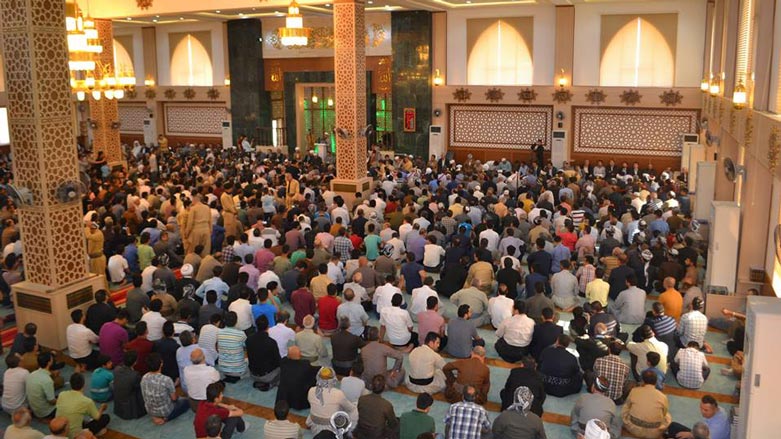Standardizing Friday prayers in Kurdistan benefits society, national interests: Ministry

ERBIL, Kurdistan Region (Kurdistan24) – The standardization of Friday prayers serves Kurdistan's national interests and the community as a whole, said a Kurdish official on Tuesday.
In 2016, the Kurdistan Regional Government's (KRG) Ministry of Endowment and Religious Affairs held a conference in Erbil on Friday sermons with 400 Kurdistan clerics attending.
Following the conference, participants issued 16 decisions, of which unifying Friday sermon prayers across the Kurdistan Region was one.
Some of the preachers express disagreement, labeling the decision as a tool to limit their freedom to discuss different topics. Others complain the decision is not being enforced in all cities in the Kurdistan Region.
“The decision is not well implemented in some parts of Erbil and Sulaimani provinces. Preachers there seem to be less restricted by the decision,” Amir Gardi, a Kurdish preacher in Erbil told Kurdistan24.
However, Sheikh Ibrahim Barzinji, the head of the board for standardizing religious preaching in the Ministry, refuted the claim and stated they aim to make the sermons serve the community.
“We oversee the process, and all preachers must abide by the decision,” Barzinji said. “It is in the interest of the clerics and our homeland.”
The head Islamic Scholar of Kurdistan Abdullah Saed Waisy told Kurdistan24 that standardizing the Friday preaching and having the Ministry choose the topic of the week helps prevent mosques from issuing fatwas (religious decisions) or for radical ideologies to emerge.
“Institutionalizing Friday preaching focuses the sermons on matters in the community rather than the issuance of fatwas or risking national security,” Waisy stated.
Following the emergence of the Islamic State (IS) in northern Iraq in June 2014, many Kurds were indoctrinated and joined the group to fight against the Peshmerga. Some were Kurdish clerics who motivated youths to join IS.
The KRG Ministry of Endowment and Religious Affairs previously reported that over 600 Kurds had joined IS.
"The Kurdistan Region needs to make reforms in the Ministry to eradicate extremist ideologies in the region and protect Peshmerga from being stabbed in the back while defending the people of the Kurdistan Region on the front lines,” Mariwan Naqshbandi, a Kurdish official from the Ministry stated at the beginning of 2016.
Editing by G. H. Renaud
(Additional reporting by Goran Shakhawan)
